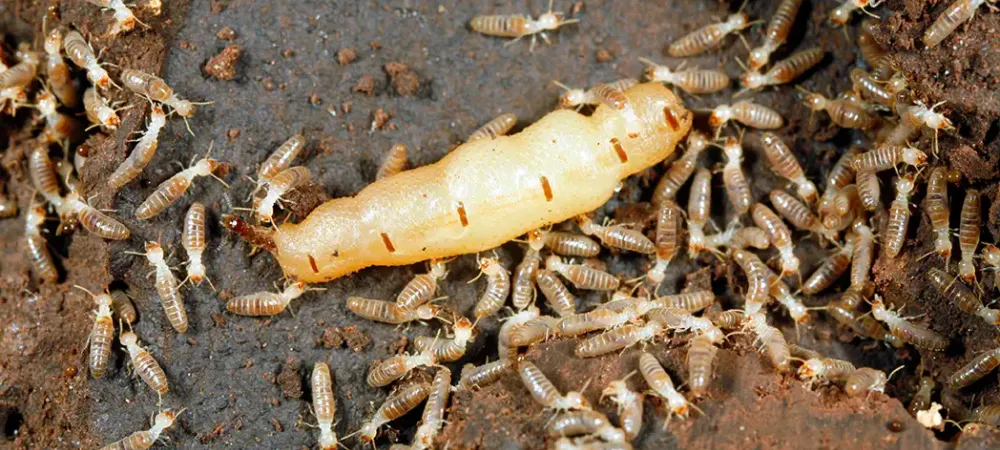The Importance of Termite Prevention in Winter

When temperatures drop, most homeowners in New Jersey and New York assume termites go dormant. After all, how could these wood-destroying insects survive in freezing weather? The truth is, termites are active year-round—and winter is when many infestations go unnoticed.
Understanding how termites behave in cold weather is key to protecting your home and avoiding costly repairs.
Do Termites Survive the Winter?
Absolutely. Termites may slow down in colder months, but they don’t die off. Instead, they move deeper underground or deeper into your home’s structure where it’s warm and protected.
- Subterranean termites, the most common species in our region, survive by digging deeper into soil where temperatures remain above freezing.
- Inside heated homes, termites continue feeding within walls and foundations, often without visible signs until significant damage occurs.
In short, winter gives termites cover—literally—while they quietly expand their colonies.
Why Termite Activity in Winter Matters
Because termites are less visible during winter, infestations can progress undetected for months. A small colony can consume up to a pound of wood per day, compromising flooring, beams, and structural supports before spring even arrives.
This makes winter the perfect time to schedule a professional termite inspection. Detecting early signs now can prevent extensive damage later.
Common Winter Termite Warning Signs
Even in the cold months, there are still clues that termites are active in or around your home. Watch for:
- Mud tubes along foundations or basement walls (used to travel between soil and wood).
- Bubbling or blistering paint, which can signal hidden moisture or termite tunnels beneath.
- Hollow-sounding wood when tapped.
- Discarded wings near windowsills or light fixtures.
- Sawdust-like droppings (frass) near wooden structures.
If you notice any of these warning signs, it’s time to call a termite specialist right away.
Winter Termite Prevention Tips
Preventing termite damage starts with limiting their access points and removing attractants around your home. Here’s how to stay protected this winter:
- Eliminate Moisture Sources: Termites thrive in damp conditions. Repair leaky pipes, clean gutters, and ensure crawlspaces stay dry and well-ventilated.
- Store Firewood Properly: Keep logs stacked at least 20 feet away from your home and raised off the ground. Firewood piles attract termites seeking easy cellulose meals.
- Seal Foundation Cracks: Tiny gaps in your foundation or around utility lines are open doors for termite entry. Caulking and sealing these areas can make a big difference.
- Maintain Mulch and Soil Levels: Keep mulch at least six inches away from siding, and avoid piling soil against the foundation where termites can enter unseen.
- Schedule a Winter Termite Inspection: Even if you don’t see visible signs, a professional inspection can detect hidden activity using moisture meters, infrared scanning, and bait monitoring systems.
Professional Winter Termite Control with Superior Pest Elimination
At Superior Pest Elimination, we don’t take the winter off—and neither should your termite protection. Our termite control service in New York and New Jersey are designed for year-round defense, including:
- Comprehensive interior and exterior inspections
- Sentricon® baiting system installation and monitoring
- Targeted treatments to eliminate existing colonies
- Preventive barrier treatments for long-term protection
Whether you’ve had past termite issues or want to stay ahead of potential infestations, winter is the smartest time to act.
Final Thoughts
Just because it’s cold outside doesn’t mean your home is safe from termites. In fact, the hidden nature of winter infestations makes them even more dangerous. A proactive inspection and ongoing protection plan can save you thousands in repairs and stress down the road.
